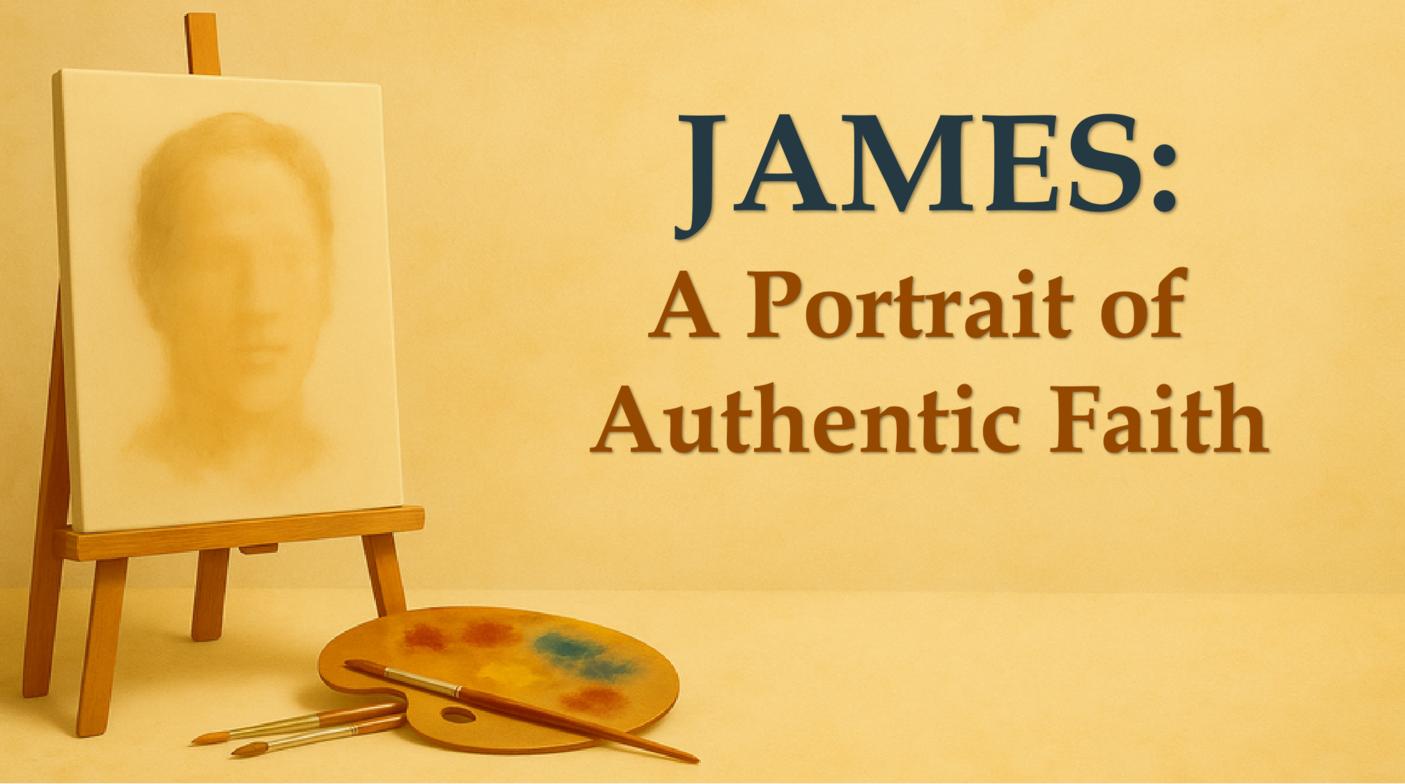When Religion Gets Real


Most of us have met someone who talks a lot about religion but doesn’t always live it out. Maybe we’ve even been that person. We go to church, pray before meals, try to be decent people, and assume that’s enough. But deep down, we wonder: Does any of this actually matter? Is religion supposed to make me different — or just busy?
James, the half-brother of Jesus, asked that same question nearly 2,000 years ago. His short New Testament letter cuts through the noise of religious activity and goes straight to the heart. He wrote,
“Religion that God our Father accepts as pure and faultless is this: to look after orphans and widows in their distress and to keep oneself from being polluted by the world.” (James 1:27)
That’s refreshingly simple — and surprisingly challenging.
According to James, real faith changes three things: our words, our compassion, and our integrity.
In a world full of religious talk, that’s still what people long to see.
1. “Why are religious people sometimes so harsh?”
James begins with the tongue:
“If anyone thinks he is religious and does not bridle his tongue, he deceives his heart, and his religion is worthless.” (James 1:26)
James is saying it’s possible to have a “public religion” that looks impressive, yet if our words are harsh, dishonest, or cruel, it’s all noise.
That matters today when so much of life happens online. Sometimes the loudest “Christian” voices on social media sound angrier than loving. But faith that doesn’t change how we speak hasn’t yet reached the heart.
The goal isn’t silence, but Spirit-controlled speech — words that build up instead of tear down, that tell the truth without venom, and that show grace even when we disagree.
Imagine if every believer paused before posting or replying and asked: Is this true? Is this necessary? Is this kind?
The internet might become a much more peaceful place.
Authentic faith begins with bridled speech — not because God wants to muzzle us, but because He wants to make our words life-giving.
2. “How are Christians supposed to respond to the vulnerable in society?”
James gives a surprisingly practical answer: “Visit orphans and widows in their distress.” In other words, faith doesn’t ignore suffering — it enters it.
When James wrote those words, widows and orphans were the most vulnerable people in society. They had no safety nets, no income, and often no voice. The early Christians became known for showing up — feeding the hungry, rescuing abandoned infants, and caring for the sick when others walked away.
Their love was so radical that even their enemies noticed.
That’s what happens when faith takes action.
Today, those same needs still exist — they just wear different faces:
-
The single parent working two jobs and still struggling to make ends meet.
-
The elderly neighbor who hasn’t had a visitor in months.
-
The teen in foster care wondering if anyone truly cares.
-
The refugee, the disabled, the lonely.
We can’t fix every problem, but we can show up.
That’s the difference between talking about compassion and practicing it.
Pure religion starts with presence. It looks for someone in distress and steps toward them with love, not away from them with excuses.
3. “Can anyone actually live this way?”
That’s the question James knew we’d ask. Because at first glance, his standard seems impossible — pure words, selfless compassion, and a spotless life in a stained world.
But James doesn’t write to discourage us; he writes to call us higher.
He reminds us that it is possible to live with integrity before God, because Christ Himself lives within us.
There’s an old nursery rhyme that says,
There was a crooked man, who walked a crooked mile,
He found a crooked sixpence beside a crooked stile,
He had a crooked cat who caught a crooked mouse,
And they all lived together in a little crooked house.
Why was everything crooked? Because the man himself was crooked.
That’s what sin does — it bends things.
When the heart is bent, everything else — our words, our relationships, our motives — starts to twist with it. But Jesus came to straighten what sin has bent. He purifies the heart and makes it possible to live clean in a crooked world.
Many Christians are doing their best to walk that straight path. They’re not perfect — none of us are — but they’re learning to give God their “yes” every day:
“Yes, I’ll forgive.”
“Yes, I’ll serve.”
“Yes, I’ll stay faithful when the world says compromise.”
That’s not hypocrisy; that’s growth.
And when we say "yes," the same grace that forgives us also strengthens us to live with integrity in a world that desperately needs it.
4. “So what’s the point of religion anyway?”
James’s answer might surprise you: the point isn’t religion at all — it’s relationship.
Real faith isn’t what we perform for God; it’s what God produces in us. It’s Christ’s life reproduced in our hearts — controlling our words, shaping our compassion, and keeping our lives clean in a stained world.
You can be religious and still miss Jesus. But if you have Jesus, He’ll make your religion real.
He bridled His words, loved the forgotten, and walked through this crooked world unstained — and now He lives in His followers to do the same.
That’s authentic faith.
Not perfection — but transformation.
Not performance — but presence.
Not religion that talks — but religion that lives.
Final thought
If you’ve ever been turned off by fake religion, you’re in good company. James was too. But don’t give up on faith because of those who haven’t lived it well.
Jesus came not to make people “more religious” but to make them new — people whose words heal, whose hands serve, and whose hearts stay clean in a broken world.
That’s what authentic Christianity looks like.
And it still changes lives, one “yes” at a time.
